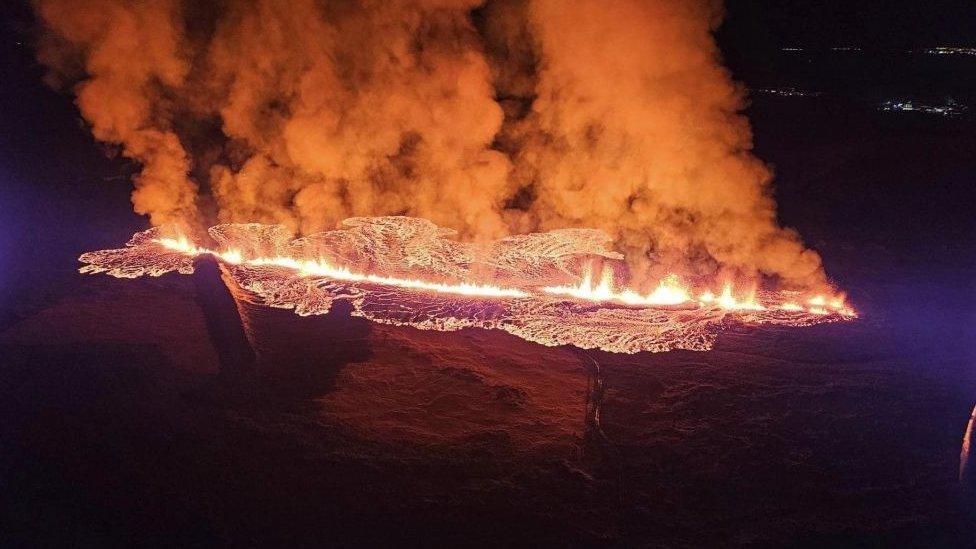Iceland volcano: Fourth eruption since December
- Published
- comments
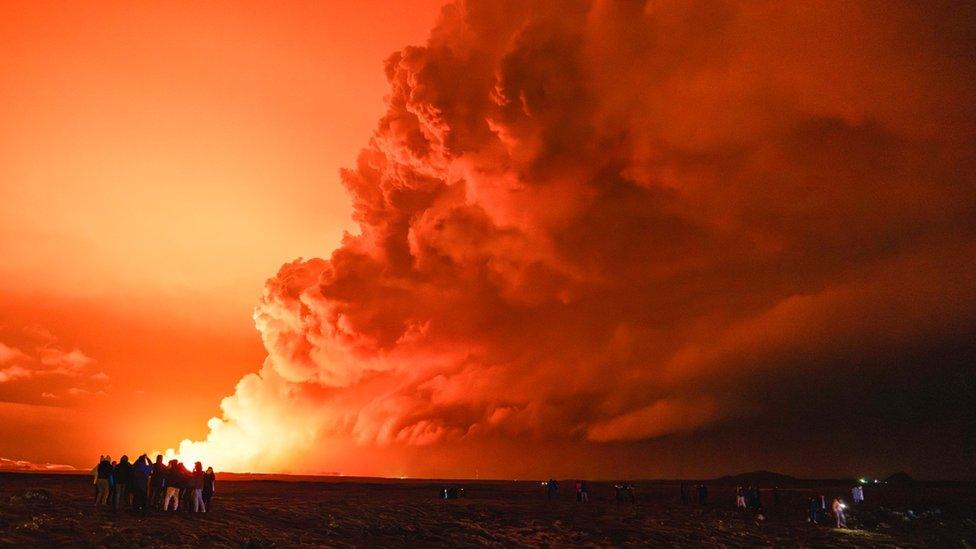
People have been asked to leave the area around Grindavik for safety
A state of emergency has been declared following the fourth eruption of a volcano in Iceland since December.
The volcano on the Reykjanes Peninsula in the south-west of the country last erupted in February.
Clouds of smoke can be seen in footage as glowing magma bubbles from the earth.
The powerful and fast flow of lava started late on Saturday but experts say that it has slowed.
Watch: Iceland volcano spews lava in eruption on the Reykjanes Peninsula
Lava has reached the town of Grindavik, where people have been asked to leave the area for safety.
The town is home to roughly 4,000 residents and they were only allowed to return to their homes about a month ago following an eruption in January.
Although most of the residents chose not to return.
Vídir Reynisson, who is the director of Iceland's civil defence, said everything that could be done to prepare for the lava had been done and the biggest worry is for the impact on infrastructure.
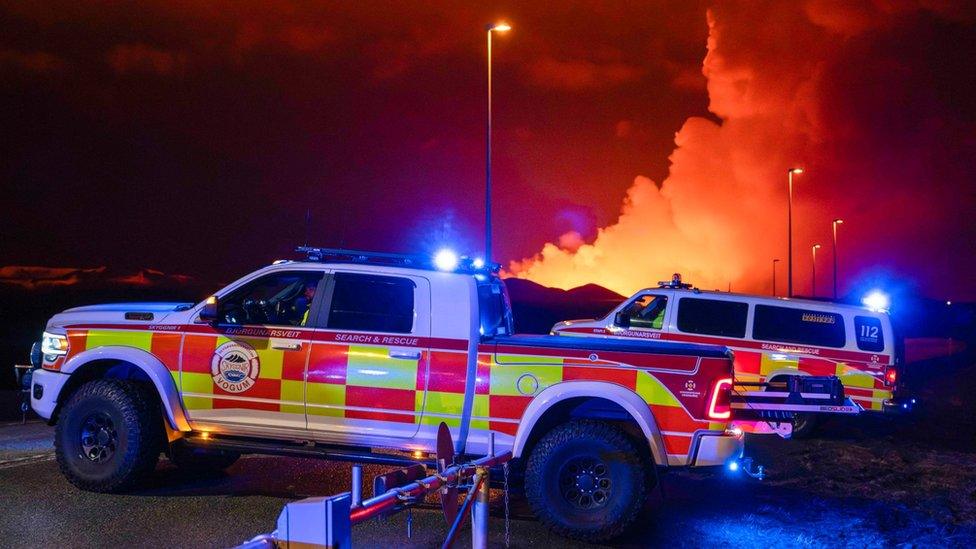
It's the fourth eruption on the peninsula since December
There are concerns about lava moving towards a geothermal power plant which provides hot water for most of the peninsula and damage to cables which could disrupt phone and internet services.
The Icelandic Met Office said this lava bed was "significantly wider" than in February.
Experts say the last time the Reykjanes Peninsula had a period of volcanic activity was 800 years ago - and the eruptions went on for decades.
This is now the seventh eruption since 2021, and scientists believe the area is entering a new volcanic era that could last for decades or even centuries.
- Published8 February 2024
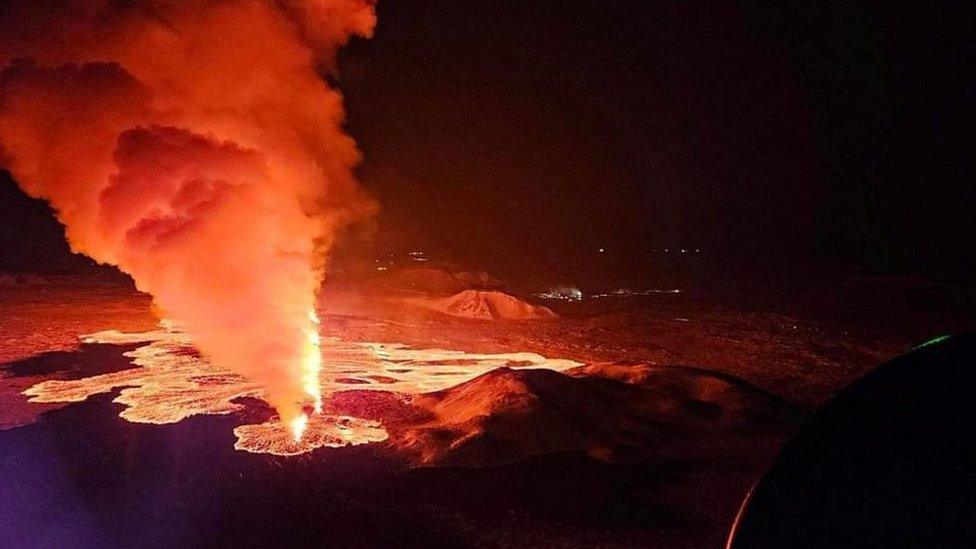
- Published1 May 2024
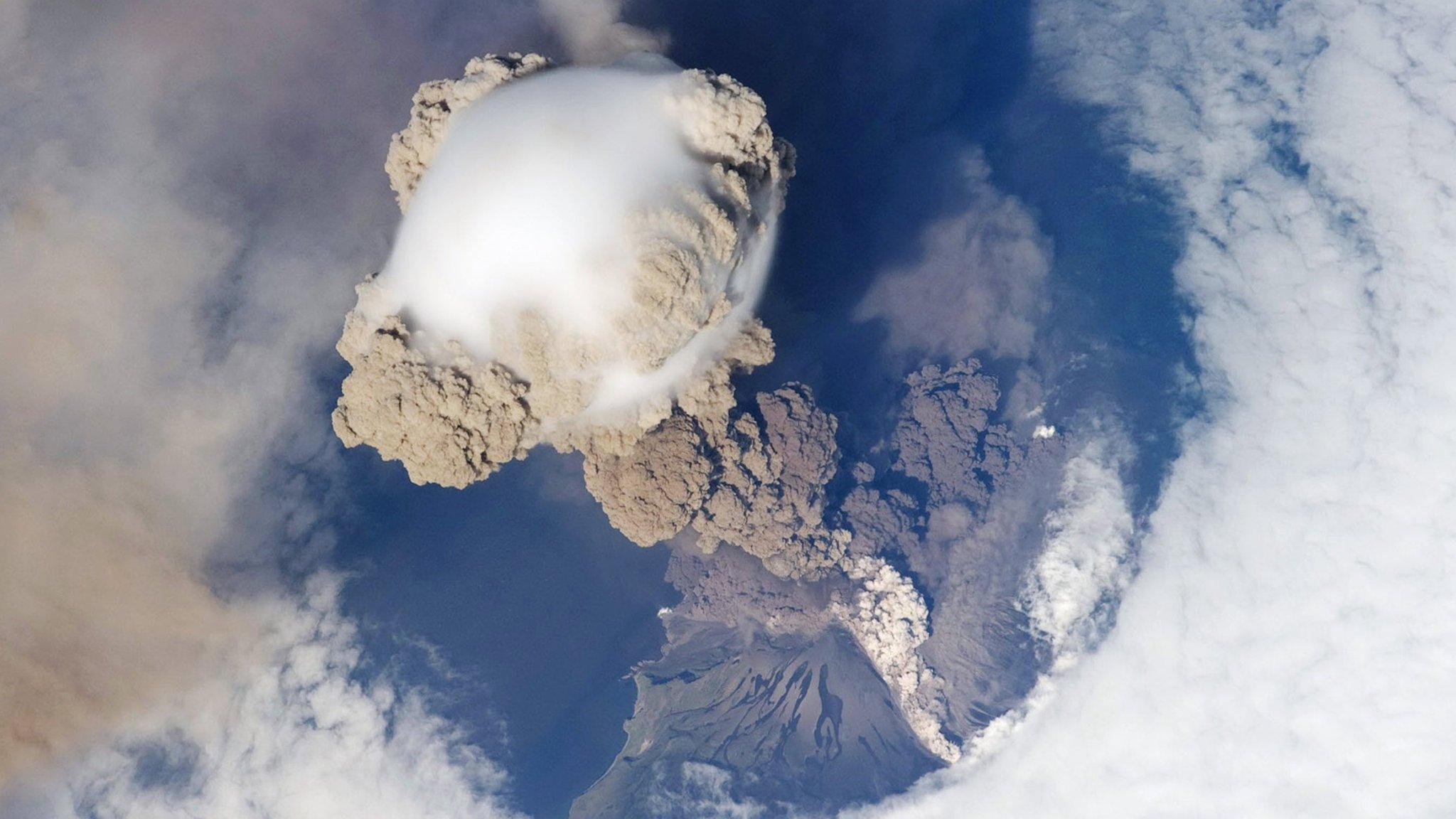
- Published15 January 2024
